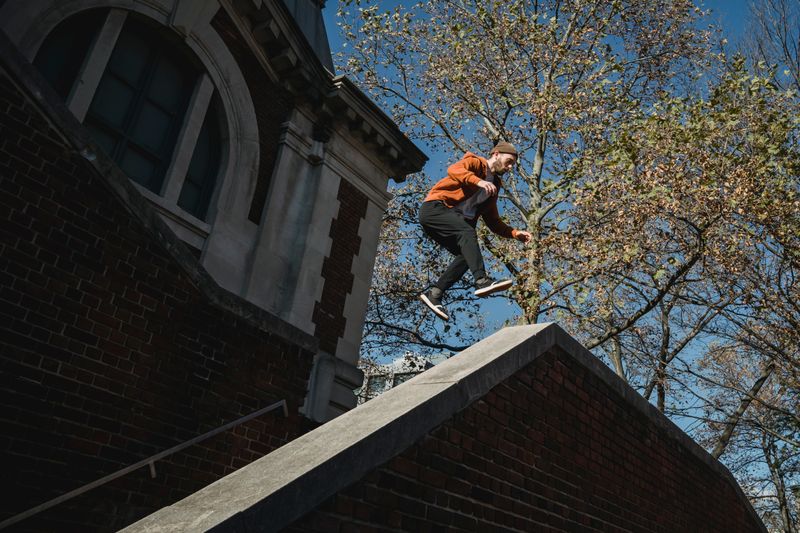The Rise and Fall of Lil Tay: A Controversial Phenomenon in Social Media
Introduction
On August 9, 2023, the family of Lil Tay, a social-media star who rose to fame at the age of 9, announced her sudden and tragic death at the age of 14. Lil Tay, whose real name was Claire Eileen Qi Hope, captured the attention of the internet with her audacious persona and extravagant lifestyle. However, her story is more than just a tale of fame and fortune; it highlights the complexities of the influencer culture and the dangers it poses, particularly to young children who find themselves thrust into the spotlight.
The Making of Lil Tay
Lil Tay’s rise to fame began with her outrageous Instagram videos, where she flaunted her supposed wealth and luxurious lifestyle. She claimed that her toilet and wardrobe were more expensive than most people’s rent, and she reveled in being the “youngest flexer of the century.” The key to her success lay in being a living, breathing meme, shocking and entertaining her viewers with her explicit language and provocative behavior.
Behind the scenes, Lil Tay’s half-brother, Jason Tian, played a critical role in crafting her image and constructing her online persona. A 16-year-old boy obsessed with the internet and its star-making power, Jason saw the potential in his younger sister to capture the attention of millions. He wrote Lil Tay’s lines, coached her on delivery, and managed her Instagram account. Jason was the mastermind behind Lil Tay’s rise to fame.
The Marketing of Lil Tay
The marketing of Lil Tay involved a series of calculated moves designed to capitalize on her sudden popularity. She connected with Dooney Battle, co-founder of the management group Tha Lights Global, who saw the potential in representing Lil Tay. However, it was Jason who communicated with the industry professionals, posing as Lil Tay. This deception highlighted a fundamental flaw in the influencer culture – the ease with which online personas can be fabricated and manipulated.
During her time in Los Angeles, Lil Tay met with various industry professionals, shot videos with famous rappers, and even gained the attention of celebrities like Rick Rubin and Howard Stern. However, amid the flurry of meetings and deals, the family struggled to find a stable management team. Multiple managers claimed responsibility for Lil Tay, leading to confusion and missed opportunities. The lack of contracts and clear direction hindered her potential to transition from a social-media sensation to a legitimate artist.
The Controversy and Fall of Lil Tay
As Lil Tay’s fame grew, so did the controversies surrounding her. Videos of her smoking a hookah and pretending to smoke a baby carrot as if it were a joint surfaced online. Despite attempts by her temporary manager, Diomi Cordero, to rein in her behavior and mold her into a more mainstream influencer, Lil Tay’s actions became increasingly outrageous and problematic.
The online persona created by Jason and embraced by Lil Tay blurred the lines between reality and fiction. Her audacious behavior and explicit language raised concerns about the impact she was having on her young viewers and the influence she was exerting on impressionable children. Additionally, her parents, Angela Tian and Chris Hope, were caught in a custody battle over the control and direction of Lil Tay’s career, further fueling the controversy surrounding her.
Amidst the turmoil, Lil Tay’s Instagram account was abruptly taken down, leaving her followers confused and her brand in disarray. Rumors circulated that the account had been hacked, but the real reason for its removal remains unknown. Lil Tay’s parents, particularly her father Chris, sought to intervene and protect their daughter from the negative influences and potential exploitation she faced.
Forever a Child of the Internet
The story of Lil Tay is both a cautionary tale and a reflection of the influencer culture that dominates our digital landscape. It raises important ethical questions about the exploitation of young children for the sake of online fame and the damaging consequences it can have on their physical and mental well-being.
As Lil Tay’s parents navigate the legal and moral complexities of her career, it is crucial that they prioritize their daughter’s safety, education, and personal development. Lil Tay’s story may have come to a tragic end, but the lessons it offers should serve as a reminder to society about the responsibilities we have in protecting the innocence and well-being of young individuals in the digital age.

<< photo by Thought Catalog >>
The image is for illustrative purposes only and does not depict the actual situation.




